
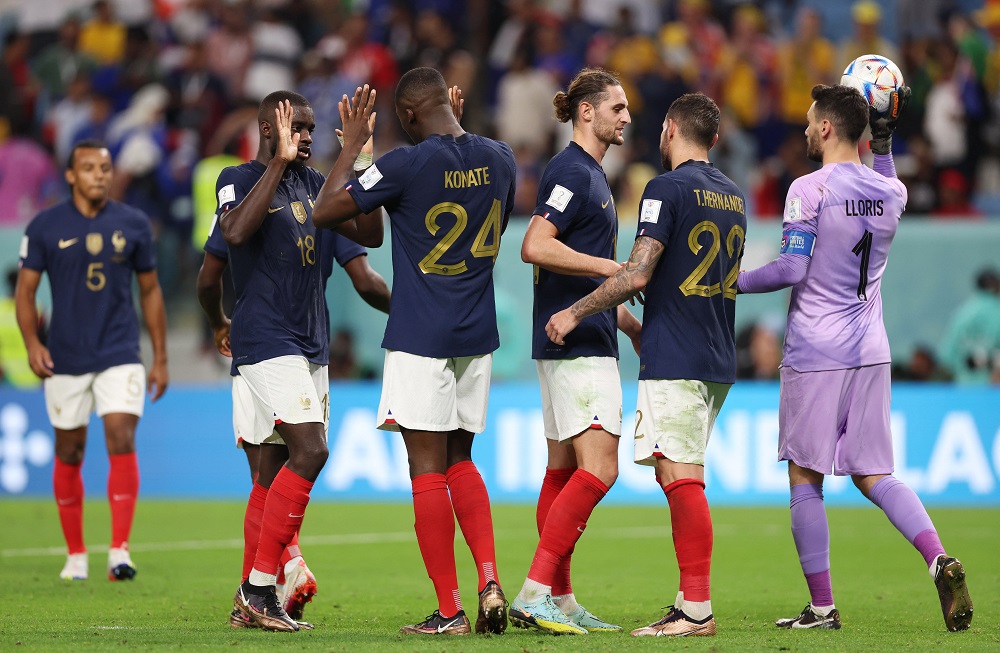
Tony Morrison/Contributor
Defending champion and two-time World Cup winner France is the fourth ranked team in the world by FIFA, behind Brazil, Belgium, and Argentina, but third favourites behind Brazil and Argentina for the 2022 World Cup.
On paper, France is clearly better and deeper than Belgium, but although Belgium has not beaten a top 10-ranked team in over a year, they have displayed a better record in recent games than France, hence the higher ranking.
France enjoys what is perhaps the easiest group in the World Cup, and with no disrespect to a stubborn Denmark, an attacking Tunisia, and a usually plucky Australia, will have no excuse if they do not dominate the group and qualify easily for the next round.
THE BURDEN OR BLESSING OF SUPERSTITION
It’s great to be among the favourites, but defending champions do not usually repeat triumph at World Cups.
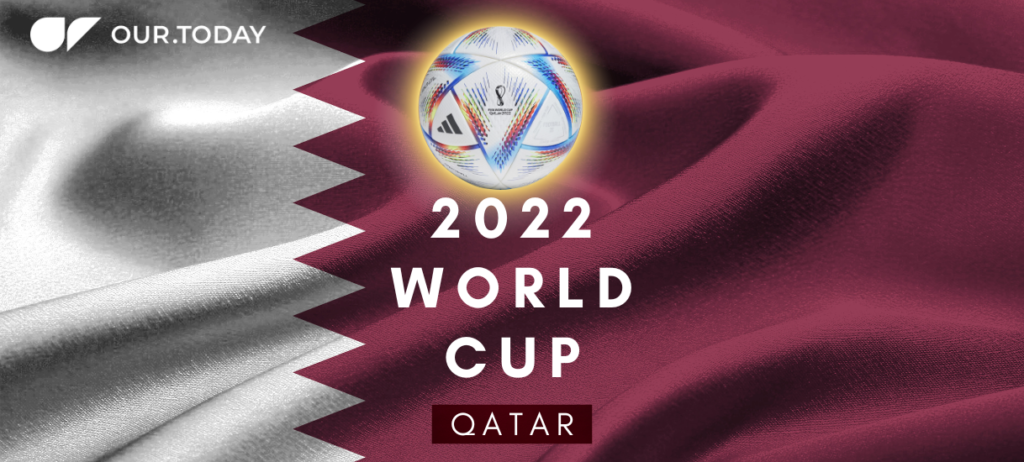
Only Italy in 1934 and 1938 and Brazil, in 1958 and 1962, have pulled it off.
The last team to do it, Brazil, has come the closest, reaching a second consecutive final in 1998 after winning in 1994. Interestingly, it was France who interrupted Brazil then, and, if this World Cup goes to form, it is Brazil who will poetically have a chance to return the favour to France in the final.
When France stopped the party in 1998, it interrupted an unprecedented three-peat, as Brazil went on to win again in 2002. With a very talented young team, that feat is exactly what France will hope they can pull off, starting with a title defence in this World Cup.
In addition to making them the only team to three-peat, two more wins would bring them level on four cups with Italy and Germany, bringing all three within one tantalising win short of Brazil’s record five.
There is also some superstition afoot. Since 2006, when defending champions Brazil got as far as a quarter-final before falling to France, it seems that a defending champions’ curse has developed. After taking the title in 2006, Italy then dropped out in the first round for the next two World Cups, then failed to even qualify for the next two.
After winning in 2010, Spain spectacularly crashed out in the first round in 2014. After winning in 2014, Germany too made a shock first-round exit in 2018. Three times in a row, all European teams. The first psychological target for France, therefore, is to avoid stumbling in the first round, which they have now done after becoming the first team to advance.
If title defences are unlikely, though, we should recall that France has a history in World Cups of pulling off what is not expected.
A team without a dominant or consistent striker shouldn’t be able to win a World Cup, yet France did just that in 1998, at the expense of Brazil, who, ironically, had just suffered a blow to their dominant striker.
A young and inexperienced team shouldn’t be able to win a World Cup, but with a team with an average age of 24 years and six months – the youngest French team since the one that faced Mexico in Uruguay in 1930 – France convincingly won the tournament in 2018.
The other major element of superstition around France might be more in their favour. Along with Argentina, the other favourite in this tournament is Brazil, which, based on prevailing superstition, could be good news for France, assuming both make it to the final as expected.
For whatever reason, France has made a habit of getting the better of Brazil in World Cups, even in instances when it did not have the better team. France seems to be Brazil’s World Cup jinx.
Brazil will usually beat France anywhere else at any time, but in World Cups, has not beaten France since a 5-2 victory in 1958. Since then, a very good French team featuring the legendary Platini outlasted Brazil with an ageing Zico to win on penalties in a 1986 quarterfinal, then after Ronaldo’s bizarre episode in the 1998 final, a masterful Zidane led France in demolishing a better but demoralised Brazil.
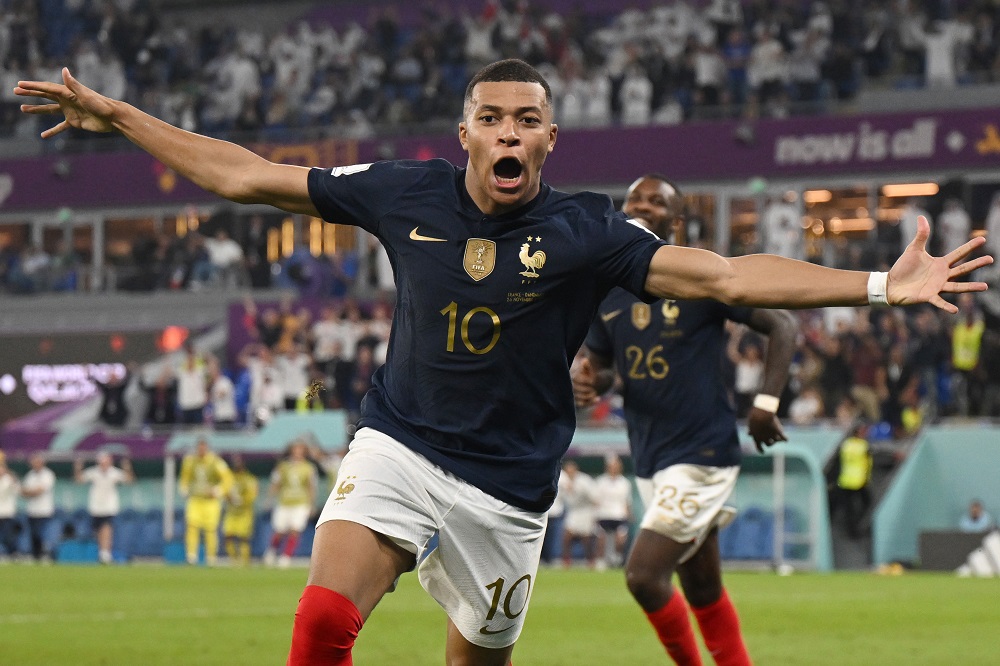
In 2006, Zidane again inspired France to edge a better but underperforming Brazil team in the quarterfinals. In four regular World Cup games, therefore, France has the advantage of two wins against Brazil’s one, with one game ending in a draw in full time before France won on penalties. France also has a plus-one goal advantage in the head-to-head comparison, with seven goals to Brazil’s six. Even at the last World Cup, when Belgium knocked out Brazil, there was French involvement with assistant coach Thierry Henry on the Belgium bench!
All trends must end at some point, and it would balance the scales with Brazil returning the favour and overcoming France in the final.
HANDICAP 1 – INJURY EPIDEMIC
France enters the FIFA Qatar World Cup plagued by injuries. It is testament to the sheer talent of the squad that they remain favourites despite this, but the losses are also too serious to brush aside.
The spine of a football team is critical, and France has lost four very important components of that spine, in Barcelona’s Samuel Umtiti in central defence, Chelsea’s N’Golo Kante, Paul Pogba of Juventus in midfield, and Ballon d’Or winner, Real Madrid’s Karim Benzema as the razor-sharp tip of the offensive spear.
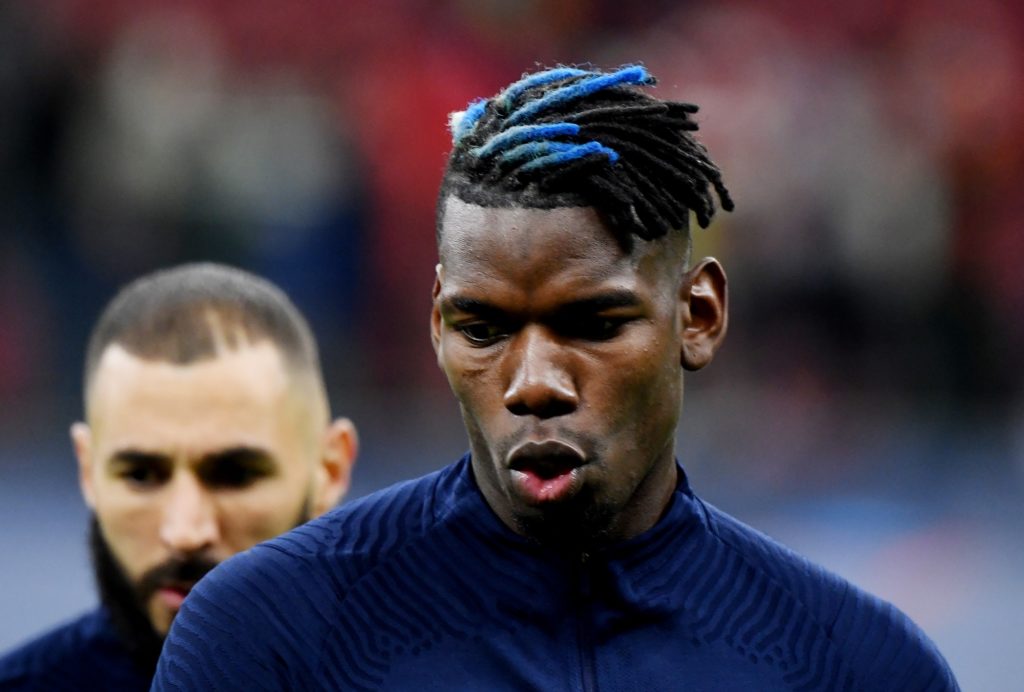
Benzema in top form is arguably the best striker in the world today, and I say this sincerely as a Barcelona fan. A recent injury picked up on duty with Madrid already had his sharpness in some doubt, but even a Benzema at 70 per cent is better than most. The loss of such a devastating cutting edge to lead the attack must hurt, especially since there is no replacement even close to his level.
Superstar Mbappe of PSG is certainly in the same league, but does not occupy the same position, and prefers operating from the left wing, where he would have been even more effective in tandem with Benzema playing ahead of him.
At his best, Atlético Madrid’s Antoine Griezmann is brilliant, but has not been anywhere near top form since his ill-fated transfer to Barcelona. In addition, even at his best, Griezmann is inexplicably unwilling to lead the line, preferring to operate as a false nine behind another striker, which makes him somewhat underwhelming in comparison to the aggressive Benzema.
This sees France sacrificing a midfielder to play two strikers, with AC Milan’s Olivier Giroud likely leading the line instead. I’m not a Giroud fan, even if he just tied Henry’s 51-goal national record, but while he’s no Benzema, he can be competent enough with good service. Where the sacrifice pays off is that instead of playing a dedicated attacking playmaker in front of two defensive midfielders, France uses one traditional defensive midfielder and a hybrid who does a bit of both. Brazil does the latter sometimes with Lucas Paqueta partnering Casemiro in defensive midfield in order to break down tight defences with Neymar in place as the main playmaker.
A better replacement for Benzema, albeit inexperienced at this level, would be the young but immensely talented Christopher Nkunku of German club RB Leipzig, where he has posted 12 goals in 15 games this season.

He is tied with France teammate Mbappe, Tottenham’s Harry Kane, in the race for the European golden boot, one ahead of Neymar and behind only Barcelona’s Lewandowski and Manchester City’s Haaland. In the previous season, he recorded 20 goals and 13 assists in 34 games. Alas, however, he too is out injured.
In midfield, Kante is the only player who can rival Brazil’s Casemiro as the best defensive midfielder on the planet. His role in protecting the backline, marking key opposition players, and marshalling the transition from defence to attack is a body blow on the same scale or even bigger than the loss of Benzema. France playing without a dedicated attacking playmaker only accentuates his absence from midfield.
In that slot, France will lean towards the versatility of Adrien Rabiot of Juventus to partner Tchouameni or Camavinga from Real Madrid. Rabiot is a quality all-round midfielder, as he just proved in the opening game with a goal and an assist in the first half, but he will be the hybrid part playmaker/part defensive midfielder. The young pair from Madrid are phenomenal talents who are brilliant investments for France and Madrid, but it’s unfair at this point to ask any of them at this early stage of their careers to fill the vastly experienced and giant shoes of Kante.
It is Pogba who would have replaced Rabiot, and right now it may seem that his absence might be a blessing in disguise. Although it appears that Pogba is problematic at club level, however, it is perhaps a nod to the leadership of coach Didier Deschamps that Pogba usually performs well for France. In addition, he seems to be a unifying and motivating force in the France dressing room, so overall, his absence is also a blow, at least to morale.
In central defence, the name that everyone seems to have forgotten is Samuel Umtiti, now at Lecce on loan from Barcelona. He was a crucial part of the France team in the last campaign, even though his injury problems had already started. Fully fit and in form, it is Umtiti who would be the star leading the backline for both Barcelona and France, with Manchester United’s Varane as his deputy on the national team, but both club and country are poorer defensively in his absence during the past year due to injuries, and he is yet to recover top form. The experienced Varane is in the squad, but is also recovering from an injury, and tellingly did not take the field in the first game.
Since starting this article, I’ve had to update it to note that quality full back Lucas Hernandez is now added to the injury list, and I can only hope that nobody else on the team gets injured after I submit it for publication!
It’s starting to seem – in Jamaican parlance, that the French team needs a “bath”. Did I mention superstition?
HANDICAP 2 – PRE-TOURNAMENT BAD FORM
Coming into a World Cup too hot might be the sign of peaking too early and it can be downhill from there. Nevertheless, one still wants to show up sharp with some winning momentum and a confident mentality.
So far so good from the first game, but it was only Australia, and France was always expected to get past Australia. The first game victory, therefore, however reassuring, does not quite yet remove all the doubts created by France’s poor form entering the tournament.
France has only one win in six pre-tournament games in the 2022 UEFA Nations League. Before beating Denmark 2-nil in September, they lost 2-nil to Austria earlier in the same month, lost 1-nil to last World Cup’s beaten finalists Croatia in June, and drew 1-all with Denmark, Croatia and Austria before that.
At the Euros in June 2021, World Cup champions France started as favourites after being runners up to Portugal in 2016. They got off to an encouraging if modest start by edging Germany 1-0, but then went downhill from there to draw 1-1 and 2-2 with Hungary and Portugal respectively, before crashing out to Switzerland on penalties after a 3-3 draw.
Some redemption came in October 2021 when France topped Spain 2-1 to win the 2021 UEFA Nations League final, but until now, it has been mostly downhill from there.
Still France, put in a good performance against Denmark yesterday, with its front line firing on all cylinders. One gets the feeling the team is getting better as the tournament progresses.
HANDICAP 3 – A SUSPECT DEFENCE.
If you are planning to win the World Cup, it helps to have someone in each position who is in the top five in the world, preferably top three. France has this in other positions, but unlike a few other teams, not so much at the back.
Goalkeeper Hugo Lloris is OK, but like his current defenders, does not enter the conversation when talking about who is best in the world right now. France is not exactly known for keeping clean sheets.
Benjamin Pavard of German champions Bayern Munich is a converted centre-back, like his club and national teammate Lucas Hernandez. He has become a solid option as a full back, but the opposing flank now has a hole where Hernandez offered similar stability. His talented younger brother Theo, from AC Milan, replaced him in the opening game, and might remain in the slot, but at this point it’s a step down in experience and quality. The options at the centre are a bit less dependable, especially in the absence of Umtiti and Varane playing together. On paper, the remaining central defenders do not lack quality, but the existing record of letting in goals suggests a deficit in cohesiveness, perhaps due to the lack of experience.
The talented Ibrahima Konate of Liverpool and Bayern’s Dayot Upamecanoare arguably both contenders for the title of best young defender in the world, and are great additions to any team. Konate started playing for the national team this year, while Upamecano made his debut in 2020, and one does not usually want inexperienced 23- and 24-year-olds leading your defence in a World Cup campaign.
Both are the real deal, in keeping with the legions of young football talent rolling off the French assembly line in recent years. They both possess defensive soundness with ball-playing finesse that helps to make France a better attacking team. Under pressure, however, the collective inexperience could be a liability.
One good thing about the young France backline is the familiarity that comes with two out of four (three before the latest injuries) likely starters all playing for the same club – Bayern Munich (like the AC Milan-dominated Italian team of the 90’s and the Inter Milan-dominated Brazil team two decades later). It also doesn’t hurt that Bayern has a decent defensive record, with only 13 goals conceded in 15 games. Fittingly, like France, Bayern is an attacking team, so the goal difference is a staggering 36 after scoring 49 goals in those 15 games.
THE MAJOR RISK
In 2018, France became the only team in recent history to win a World Cup after conceding four goals or more, letting in all of six, including conceding as much as three to Argentina in a game they still managed to win by one. Two years later, they again conceded six goals in a tournament at the Euros, but this time their firepower couldn’t compensate up front.
France has more than enough talent from midfield to forward line to overwhelm most teams. The Blues have frightening pace but sometimes struggle to break down solid defences or teams that sit deep.
This means that if and when they face a team with a solid defence solid enough and cohesive midfield, they could find themselves in serious trouble. Letting in three goals against Argentina in the last World Cup was a worrying sign. Even though they went on to win that game and the title, the clear signal is that any team that can match France’s firepower plus have a better defence can beat them.
Luckily for France, not many teams can hope to do that, but it’s still something to watch for. The naïve approach that trumpets “it doesn’t matter how much you score, I will just score more,” went out with Brazil 1982. It is clearly seen in Barcelona’s recent fall from dominance, and before that, with Madrid’s failed Galácticos experiment. Football is still about scoring goals, but truly great teams, like Sacchi’s Milan, aim for perfection in attack, defence, and the midfield transition in-between.
ADVANTAGE 1 – A GOOD COACH
I think Deschamps should have been more forceful with Argentina in 2018 by using the pace of Barcelona’s Dembele and Mbappe in tandem, instead of Mbappe alone, and I wouldn’t have tolerated Griezmann’s reluctance to lead the line.
Those two issues aside, I struggle to find much fault with Didier Deschamps, who has been coach since 2012, making him the second-longest serving coach in French national team history, after Gaston Barreau who coached from 1919 to 1945.
In his first World Cup, Deschamps took the team to the quarterfinals where they lost to eventual winners Germany. Four years later, he took them all the way to lift the trophy, and since he had captained the winning France team as a defensive midfielder on home turf in 1998, he then earned the distinction of becoming the second person to win the trophy as both captain and coach, after the legendary Franz “Kaiser” Beckenbauer of Germany in 1974 and 1990, and the third person to win as player and coach, after Beckenbauer and Brazil’s Mario Zagallo, who won as player in 1958 and 1962, and as coach in 1970.
He is no great tactical master, and sometimes seems a bit indecisive, but has consistently motivated and marshalled his troops well, selected good squads, and played strong teams. France has played all of 546 games on his watch, of which he has won 296, lost 118, and drawn 132.
ADVANTAGE 2 – A SETTLED SQUAD THAT COMPENSATES FOR EXPERIENCE WITH TALENT AND SPEED
Six members of the squad are now two-time World Cup veterans and used to the big stage. Most of the squad have been together since 2018 making them comfortable with each other and familiar with the systems they employ. Like Brazil, having a reliable experienced helps.
Despite the big names missing, and despite the inexperience in some positions, one thing this team does not lack is quality. The only team that competes with France in terms of top-class talent in each position is Brazil, and it is only because of France’s losses due to injury why Brazil may prove an obstacle.
The defenders and defensive midfielders are young and inexperienced, but still world class. Mbappe is one of the three top attacking players in the world who are at this World Cup. He combines well with the talented Dembele on the flanks forming a formidable combination of speed and skill. The prospect of the relentless pace of both Dembele and Mbappe on the flanks is absolutely terrifying, and any team with a slow backline face being ripped apart.
Significantly, with 18 assists this season for Barcelona, the underrated Dembele is third in all Europe, two ahead of Neymar, and trails only Manchester City’s De Bruyne and Messi, both tied on 24. To make matters worse for opponents is the fact that Bayern’s Kingsley Coman – yet another member of the French team who can be described as one of the very best young players in the world – is Dembele’s competition coming off the bench.
Mbappe is one of the leading goal scorers in the world this year, but that is not too difficult at PSG where he enjoys support and service from both Messi and Neymar, two of the three best passers and most skilful players in today’s game. He will not have that luxury with France, and while he should still do very well, he won’t have enough support to dominate the way he does at club level.

The only teams that can hope to offer a more potent strike force than France should be Brazil and Argentina. For Argentina, that assumes that the coach figures out how to get his best players on the pitch in the best positions. Not for the first time, Argentina failed to achieve that in its opening match. So far, in contrast, France seems set to make the best use of what it has, and it has a lot.
Like Brazil, the weakest part of the offence is the striker position, and France compensates for that by using two, but that strategy has consequences.
Like Brazil, France’s attack is stronger from the flanks, but unlike Brazil, France does not have its best player pulling the strings from behind the forward line.
Deschamps has tinkered with a back three and other variations to his formation in the recent past, but is unlikely to tinker too much now with so many first team players missing. The go-to formation should be a version of 4-2-3-1, sometimes looking like 4-2-2-2, with Griezmann fluctuating between dropping into midfield to aid build up and pressing forward to support Giroud.
Left Back: Theo Hernandez (AC Milan)
Right Back: Benjamin Pavard (Bayern Munich)
Centre Backs: Ibrahima Konate (Liverpool), Dayot Upamecano (Bayern Munich)
Defensive Midfield: Aurelien Tchouameni (Real Madrid)
Creative Defensive Midfield: Adrien Rabiot (Juventus)
Left Wing: Kylian Mbappe (PSG)
Right Wing: Ousmane Dembele (Barcelona)
Support Striker: Antoine Griezmann (Atletico Madrid)
Striker: Oliver Giroud (AC Milan)
HOT PROSPECTS
Brazil remains the world’s biggest exporter of football talent, and that is not likely to change soon. In recent years, however, it is France, not Brazil, who have led in quality over quantity and been quietly producing more top-tier young talent than Brazil. This explains the plethora of young French footballers popping up in almost all the top clubs across Europe. With that kind of pool to feed from plus established stars who are still young, France isn’t going anywhere any time soon, and so if someone manages to stop them this time because of their weaknesses, the youthfulness of the team also guarantees that they will return as contenders in 2026.
Simply put, despite all the problems, France enters this World Cup with an excellent chance of achieving a rare title defence.
With a fairly easy first round group to survive and two wins already in the bag, it is in the second round where we will start to see how well France’s firepower can cover their weaknesses and overcome their opponents.
If they pull it off, the team (still young enough) will remain favourites to attempt achieving an unprecedented three in a row World Cup wins, but France must manage to keep everyone fit next time.
– Tony Morrison is a communications consultant and award-winning journalist who is an ardent student of the beautiful game.

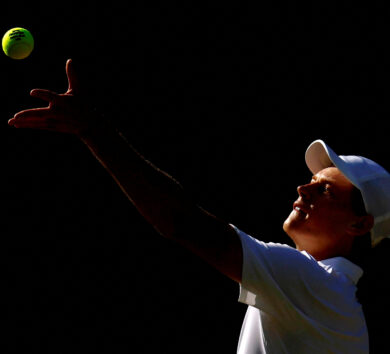
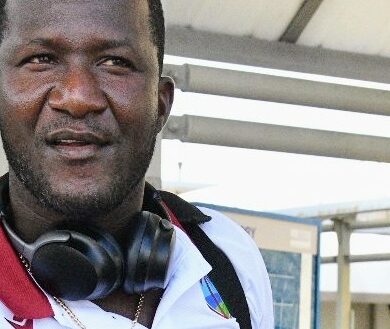
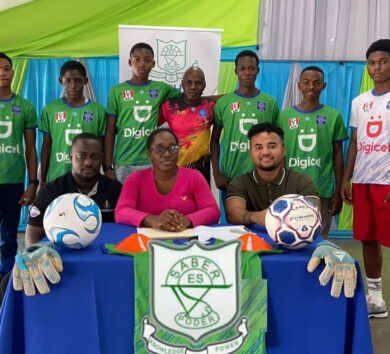

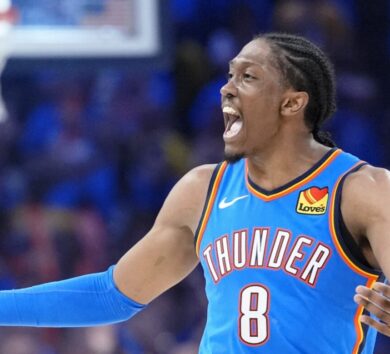
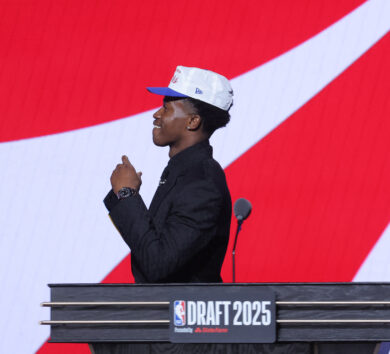
Comments